Lithium-ion battery recycling and sustainability
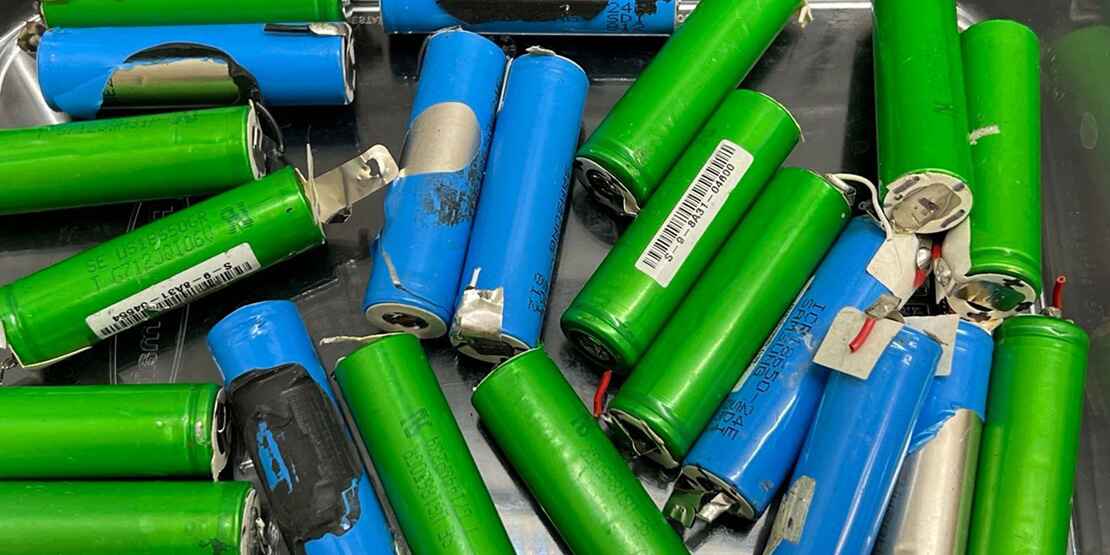
AUG 08,2024
Lithium-ion batteries (LIBs) have emerged as a game-changing innovation in the realm of sustainable energy and storage technologies, commanding widespread attention and playing a vital role in powering electric vehicles, providing sustainable energy storage systems and fueling consumer electronics. However, their growing popularity is overshadowed by legitimate concerns regarding their environmental impact. With the depletion of natural resources and the improper disposal of these batteries posing significant challenges, the need for responsible recycling methods has become increasingly evident. Lithium-ion battery recycling—an essential practice that not only promotes sustainability but also addresses pressing concerns about environmental safety and optimum utilization of natural resources.
The Importance of Lithium-ion Battery Recycling
At the core of the endeavor to address the environmental challenges posed by lithium-ion batteries (LIBs) lies the crucial role of battery recycling. This approach holds immense significance as it not only preserves valuable resources but also upholds environmental governance standards. By embracing responsible recycling practices, we have the power to effectively mitigate the detrimental environmental consequences entwined with battery production and disposal. Through these concerted efforts, we can pave the way for a future that is cleaner, more sustainable, and in harmony with our ecological surroundings.
The Recycling Process and Technologies
Lithium-ion battery recycling entails a series of intricate steps, each playing a crucial role in transforming discarded batteries into reusable materials. The process begins with collection, where used batteries are gathered from various sources, including consumer electronics, electric vehicles, and energy storage systems. Next comes the sorting stage, where batteries are carefully categorized based on their chemistry and condition. This meticulous process ensures that each battery receives the appropriate recycling method. Trained technicians then carefully dismantle the lithium-ion batteries to extract battery components. The material recovery phase follows, employing advanced recycling technologies to extract coveted materials such as cobalt, lithium, nickel, and other useful minerals from spent batteries. Innovative processes such as hydrometallurgical or pyrometallurgical methods, have revolutionized recycling practices, offering increased efficiency, enhanced rates of material recovery, and reduced environmental impact. These technologies represent the frontier of sustainable battery recycling, where science and engineering intersect to unlock the full potential of these precious resources.
Challenges and Solutions
Lithium-ion battery recycling presents formidable challenges on multiple fronts. The intricate nature of battery chemistries poses hurdles, requiring extensive research and development efforts to optimize recycling processes for different types of batteries. Safety concerns also loom large, given the potential hazards associated with handling and processing these batteries. Furthermore, the lack of standardized recycling infrastructure adds complexity to the equation. However, as the world rallies behind the urgent need for sustainable solutions, collaborative efforts between government bodies, industry leaders, and academic institutions are forging a path forward. These partnerships drive relentless innovation, focusing on improving recycling efficiency, developing safe handling protocols, and establishing a robust recycling ecosystem capable of handling the growing influx of discarded batteries.
Environmental and Economic Benefits
The benefits of lithium-ion battery recycling extend far beyond environmental considerations. By reducing carbon emissions, minimizing the need for resource extraction, and preventing pollution caused by improper disposal, recycling plays a pivotal role in promoting environmental sustainability. Furthermore, the flourishing battery recycling industry holds immense economic promise. Not only does it contribute to job creation, but it also establishes the foundation for a circular economy—an economic model where valuable materials are continually recycled and reintegrated into the total battery value chain. As we embrace the potential of lithium-ion battery recycling, we unlock exciting economic opportunities while safeguarding our planet for future generations.
Policy and Regulatory Landscape
Acknowledging the crucial significance of lithium-ion battery recycling, policymakers around the world are taking proactive steps by implementing regulations and policies aimed at addressing the challenges associated with battery disposal. These initiatives serve to highlight successful policy frameworks that not only incentivize responsible battery disposal but also foster a culture of recycling. By showcasing these exemplary models, we can inspire and encourage similar endeavors on a global scale. The ultimate goal is to create a domestic and international ecosystem that places sustainability at the forefront, fostering collaboration among businesses, individuals, and governments in their collective pursuit of a more sustainable future. Recognizing the immense potential of lithium-ion battery recycling, regulations are poised to play a crucial role in the sector’s growth, facilitating the realization of both environmental and economic benefits.
Future Outlook
In line with the surging demand for lithium-ion batteries across industries, it is projected that revenues along the entire value chain will increase significantly, creating substantial economic opportunities. Mining is not the only option for sourcing battery materials, as recycling offers a viable complementary alternative. Although the recycling segment is expected to be relatively small in the immediate future, it is projected to experience significant growth in the following decade as more batteries reach their end-of-life. Lithium-ion battery recycling stands as a formidable force in our collective efforts to achieve sustainability goals and mitigate the environmental impact of battery production and disposal. By engaging in responsible disposal practices, we preserve valuable resources, mitigate pollution, and unlock exciting economic prospects. As individuals, businesses, and policymakers, it is incumbent upon us to champion and promote responsible battery recycling practices, forging a path towards a greener and more sustainable future. Let us seize the opportunity to make a meaningful difference and pave the way for a cleaner and more sustainable tomorrow.
Reference by:- Times of India
More Relevant

Mining Technology
The cost of green energy: lithium mining’s impact on nature and people
News
Head of the environmental unit of Chile's Atacama Indigenous Council, Francis Mandoca, states that lithium mines ruin one zone to satisfy another.
read more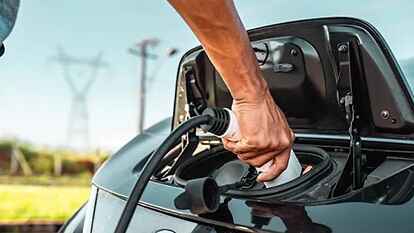
Financial Express
The Need for Recycling EV Lithium-ion Batteries to Sustain the EV Industry in India
News
Beyond environmental benefits, establishing a robust Lithium-ion battery recycling industry in India can numerous economic opportunities.
read more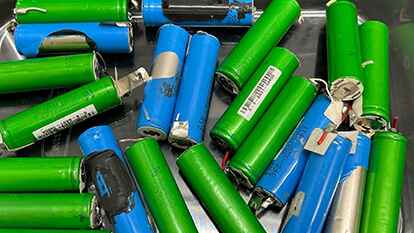
Times of India
Lithium-ion battery recycling and sustainability
News
Lithium-ion battery recycling entails a series of intricate steps, each playing a crucial role in transforming discarded batteries into reusable.
read more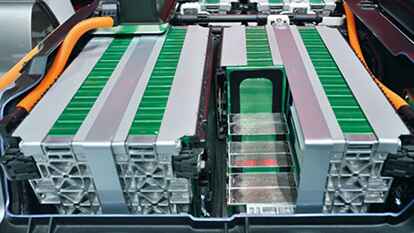
Times of India
EV Batteries and E-waste
News
Electric vehicles (EVs) have gained significant popularity in recent years due to their environmental benefits and lower operating costs compared to traditional combustion engine vehicles.
read more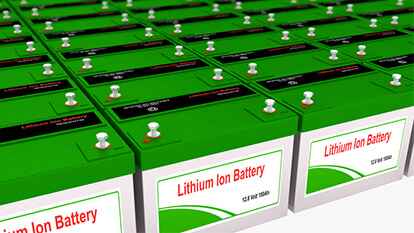
Euro News
Demand for lithium-ion batteries is unprecedented - but is mining the
News
To get the enormous mining operations in the frame, I chartered a small aeroplane and flew high above them Hegen.
read more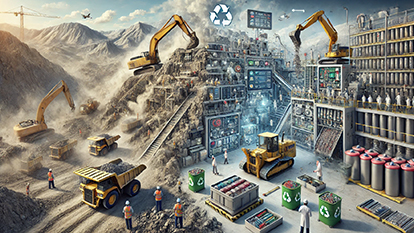
Economics Times
What should be India’s Lithium(Li) Ambition?
News
India is striving to establish reliable lithium supply to bolster its growing electric vehicle (EV) industry.
read more
EUAuto
India-EU collaboration boosts EV battery recycling startups
News
The discussion emphasised the importance of collaboration between Indian and European startups in EV battery recycling technologies...
read more
